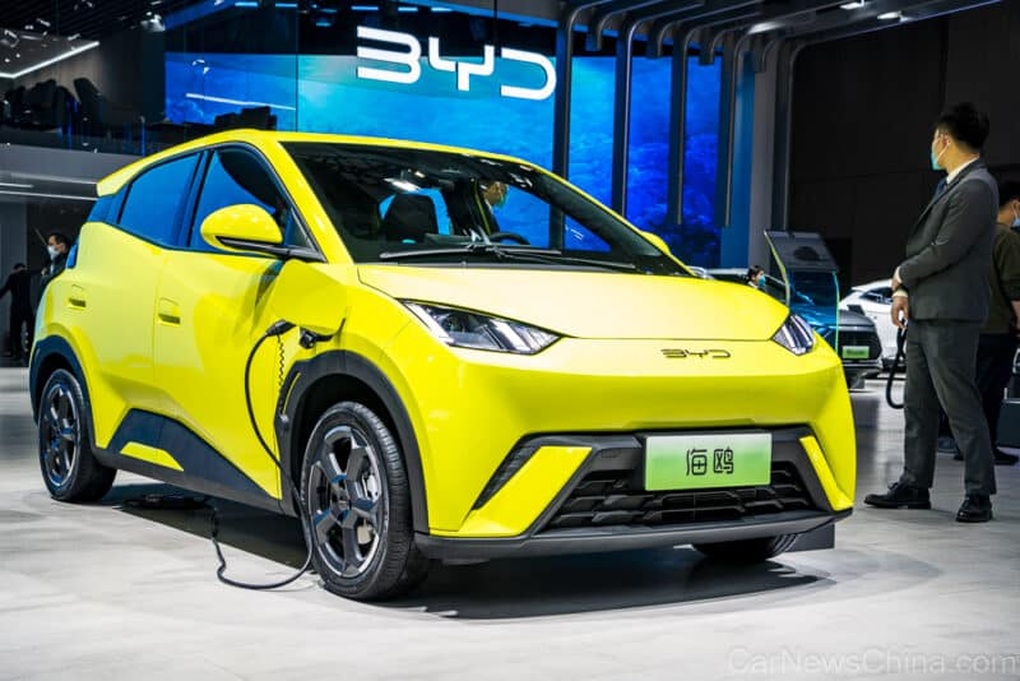
During his speech at the China Bridge 2024 partner summit, Song Zhiping, chairman of the Association of China-listed companies, stated that currently only two electric vehicle (NEV) manufacturers, BYD and Li Auto, are profitable.
Song mentioned that many companies have to produce both traditional combustion engine vehicles and new energy vehicles, but most major car factories have yet to turn a profit from electric vehicles.
"But if you don't make electric vehicles, you won't have a future. It's a dilemma for those pursuing innovation," Song said.

BYD Seagull electric car model at the 2023 Shanghai Auto Show (Photo: CNC).
Li Auto, along with BYD, are the rare companies that Song mentioned are profitable in the new energy vehicle manufacturing industry in China.
In 2023, Li Auto's total revenue reached 123.85 billion Chinese yuan (17 billion USD), an increase of 173.5% compared to 2022. Li Auto made a net profit of 11.81 billion Chinese yuan (1.6 billion USD), achieving a profit margin of about 9.5%.
The situation for electric vehicle startups is not as bright. Despite Nio's revenue increasing by 12.9% in 2023, reaching 55.6 billion Chinese yuan (7.6 billion USD), it incurred a loss of 20.72 billion Chinese yuan (2.85 billion USD), equivalent to over 45%, meaning each car sold was losing 100,000 Chinese yuan (13,750 USD).
In 2023, Xpeng's sales increased, but so did its losses. It had a revenue of 30.68 billion Chinese yuan (4.2 billion USD) but a net loss of 10.38 billion Chinese yuan (1.4 billion USD).
Many Chinese automakers are focusing on gaining market share rather than profitability. For companies producing both gasoline and electric vehicles, the losses from electric cars may be offset by gasoline sales, but for startups solely making electric cars, the situation is more difficult as they do not have a similar source of profit.
The price war is now extending to suppliers, who are forced to sell below cost to secure volume.
According to GlobalData, there were 150 car brands operating in the Chinese market in 2023; 97 were Chinese and 43 were joint ventures (the rest were likely imports). Plant utilization in 2023 was at 59%, but there was a significant difference among manufacturers.
BYD had a factory utilization rate of around 80%, while Tesla's was 92%. However, many foreign brands had very low plant utilization rates, with Hyundai at only 23%. The majority of China's production came from the top 15% of plants with utilization rates above 95%, accounting for 47% of total sales in China in 2023.
On the other hand, 20% of car plants in China produced less than 1,000 cars in 2023, and 17% produced under 10,000 cars. It is important to note that these figures are for all vehicles, not just new energy vehicles.
Hãy là người đầu tiên bình luận!
Bình luận: